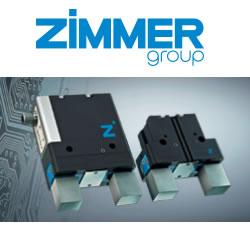First-Ever Meta-Analysis of Exoskeleton Technologies Concludes Powered Exoskeleton Systems Permit Safe Ambulation in Real-Life Settings and Produce Health Benefits
Upon completion of exoskeleton system training, 76% of documented subjects were able to walk independently without any additional human assistance
YOKNEAM ILIT, Israel and BERLIN and MARLBOROUGH, Mass., April 20, 2016 /PRNewswire-USNewswire/ -- ReWalk Robotics Ltd. (Nasdaq: RWLK) ("ReWalk"), the leading global exoskeleton developer and manufacturer, announced today the publication of the first systematic review and industry-wide meta-analysis of existing published literature assessing the clinical effectiveness and safety of powered exoskeleton-assisted walking in patients with spinal cord injury ("SCI"). The report summarizing the research concluded that "powered exoskeletons allow patients with SCI to safely ambulate in real-world settings at a physical activity intensity conducive to prolonged use and known to yield health benefits."
The report is published in the most recent edition of Medical Devices: Evidence and Research, and is co-authored by Larry E. Miller, who led the review and report with colleagues Angela K. Zimmerman and William G. Herbert. The meta-analysis-a first of its kind for the review of exoskeleton systems-examined 14 published studies representing 111 patients and focused on ambulatory performance, physiological demand, health benefits and safety. The studies incorporated in this analysis utilized a number of powered exoskeleton systems across the industry.
The authors offer a number of key conclusions:
76% of patients studied were able to ambulate without any physical assistance from another human being following completion of the exoskeleton training program.
Powered exoskeleton systems allow patients a safe means of ambulation conducive to prolonged use.
Routine use of the exoskeleton system is known to yield health benefits, including improvement in muscle spasticity and bowel movement regularity.
"This expansive, industry-wide review of published data offers critical confirmation of the multiple documented benefits of powered exoskeletons for the SCI community. We are pleased to see a growing acceptance and declaration of ReWalk and other exoskeleton systems as proven technologies with clear health benefits to customers. As the market leader in our industry, ReWalk will continue to work with the SCI community, health care providers and insurance providers, sharing the large body of published data to help support treatment and reimbursement decisions," said Larry Jasinski, Chief Executive Officer of ReWalk.
The authors expand upon the conclusions about health benefits for the user of powered exoskeleton systems in their report:
"In addition, several other benefits may accrue to SCI patients as a result of intermittent standing and habitual ambulating activity with the powered exoskeleton, including increasing upper body muscular fitness, minimizing declines in bone mineral density by periodic exposure to gravitational and muscular loading forces, improved circulatory response, and countering the independent health risks associated with prolonged sitting. Indeed, clinically relevant improveÂments were found in self-reports for muscle spasticity and bowel movement regularity following exoskeleton training. A potential focus for future research would be to assess the long-term health and cost benefits associated with chronic powered exoskeleton use. Assuming regular exoskeleton use sufficient to yield the aforementioned health benefits, it is likely that the initial expense of providing personal exoÂskeletons for home use to individuals with SCI (typically $70,000-$100,000) may be offset by savings attributable to prevention of physical maladies and associated costs in SCI patients, which may ultimately result in overall savings to the health care system."
Notably, the analysis and systematic review did not identify any serious adverse events, and reports a low incidence rate of tethered falls and fractures subsequently addressed by refinements to exoskeleton design and patient selection criteria.
ReWalk is the first exoskeleton technology in the U.S. to receive FDA clearances for both personal use at home and in the community, as well as for the rehabilitation setting. The U.S. Department of Veterans Affairs ("VA") issued a national policy for the evaluation, training and procurement of ReWalk Personal exoskeleton systems for all qualifying veterans across the United States. In addition, a growing number of health plans and health systems worldwide have recognized the benefits of exoskeletons and have approved coverage and reimbursement for such devices for qualifying individuals.
To read the meta-analysis, see: https://www.dovepress.com/clinical-effectiveness-and-safety-of-powered-exoskeleton-assisted-walk-peer-reviewed-article-MDER.
ReWalk Inc. provided support for the study, but had no editorial control.
For more about ReWalk, please visit: www.rewalk.com
About ReWalk Personal 6.0
ReWalk Personal 6.0 is a wearable robotic exoskeleton that provides powered hip and knee motion to enable individuals with spinal cord injury to stand upright and walk. The system provides user-initiated mobility through the integration of a wearable brace support, a computer-based control system and motion sensors. The system allows independent, controlled walking similar to a natural gait pattern of the legs. The ReWalk device is the most studied exoskeleton in the industry
About ReWalk Robotics Ltd.
ReWalk Robotics Ltd. develops, manufactures and markets wearable robotic exoskeletons for individuals with spinal cord injury. Our mission is to fundamentally change the quality of life for individuals with lower limb disability through the creation and development of market leading robotic technologies. Founded in 2001, ReWalk has headquarters in the U.S., Israel and Germany. For more information on the ReWalk systems, please visit http://www.rewalk.com.
Featured Product

